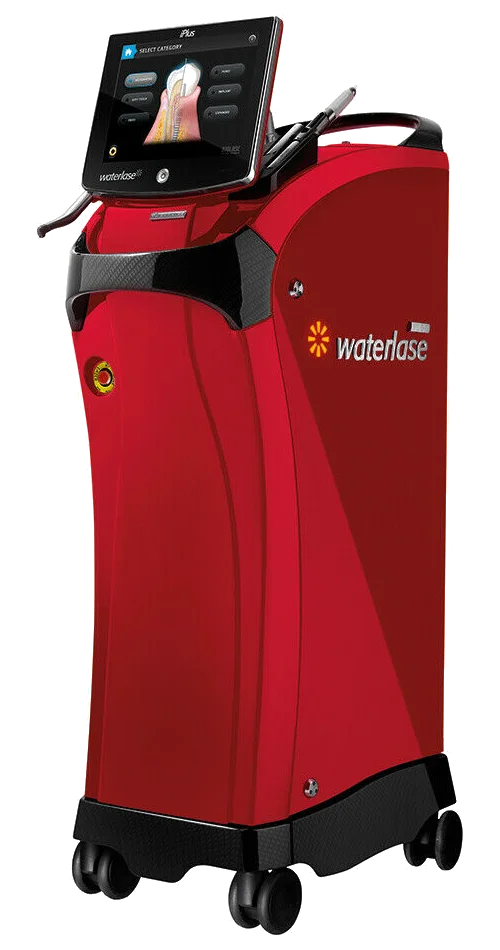
Periodontal disease, more commonly known as gum disease, is a serious oral health issue that can have a major impact on your oral health and your quality of life. Unfortunately, increasing your brushing and flossing frequency at home is not enough to eradicate the problem. When you have gum disease, prompt, professional treatment is required. Putting off treatment only leads the issue to become worse. For years, invasive surgical procedures have been used to treat more advanced stages of gum disease. At Edelweiss Dental Implant Center, we are making use of today’s latest technological developments. We can treat your gum disease with laser gum surgery.
The Progression of Gum Disease
When gum disease starts, you may not even know you have it. The earliest stages of the disease – redness, swelling, and bleeding while brushing and flossing – are often mistaken for aggressive oral care. As a result, the symptoms go untreated. Swollen gums eventually begin to pull away from your teeth, allowing bacteria and other debris to fall below the gum line. The bacteria begin to attack from the inside, harming your gums and weakening your jawbone and periodontal ligaments. Eventually, your teeth can become loose or even fall out.
In many case a Gingivectomy can prevent tooth lose. Scaling and root planing are common procedures used for treating gum disease. With this treatment, specialized tools are used to remove plaque, tartar, and bacterial buildup from around your gum line (scaling) and along the roots of the teeth (root planing).
Traditional Gum Surgery
Typically, gum disease is treated with a procedure known as scaling and root planing. With this procedure, specialized tools are used to remove plaque, tartar, bacteria, and other toxins from the surfaces of your teeth, while smoothing the roots. In many cases, this allows your gums to reattach to the teeth and heal. If the periodontal pockets are too deep, however, scaling and root planing tools cannot effectively clean the teeth. In the past, this would mean that surgery using a scalpel was needed. Scalpels cause significant tissue trauma, as well as bleeding. During recovery, which could often take quite some time, you may experience swelling and pain.
Laser Gum Surgery
Laser gum surgery allows us to treat more advanced stages of gum disease without the invasiveness associated with the scalpel. By setting the laser to different wavelengths, we can accomplish different tasks. The laser can be used to remove infected tissue, providing us with the access we need to thoroughly clean your teeth. It can also help to disinfect your teeth, killing the bacteria that is hiding out underneath your gums. It can also be used to stimulate new tissue growth, which then allows your gums to heal faster.
Lasers are used for a variety of dental procedures, helping you to optimize the health and beauty of your mouth.
Benefits of Laser Gum Surgery
- Minimal bleeding. The laser cauterizes your gum tissue as it works, reducing the amount of bleeding you may experience during your procedure. This also helps to eliminate the need for sutures following surgery.
- Less pain during your procedure. The laser provides pinpoint accuracy, as well as much more precision. This can help to lessen the amount of pain you might experience during your procedure.
- Better, faster healing. Because the laser is so precise, it reduces the amount of tissue trauma during your procedure. This means less pain and swelling after your surgery is complete. Because of this, you have less downtime. learn more about Periodontal Maintenance.
- The laser aids in stimulating tissue regeneration (which also contributes to faster healing).
- Gum disease is treated in a single visit.
If you have gum disease, it is important to seek treatment right away. With laser gum surgery, we can provide you with the treatment you need, with less bleeding, pain, and swelling, allowing you to recover faster. For more information about laser gum surgery, contact Edelweiss Dental Implant Center today at (972) 315-2345.
